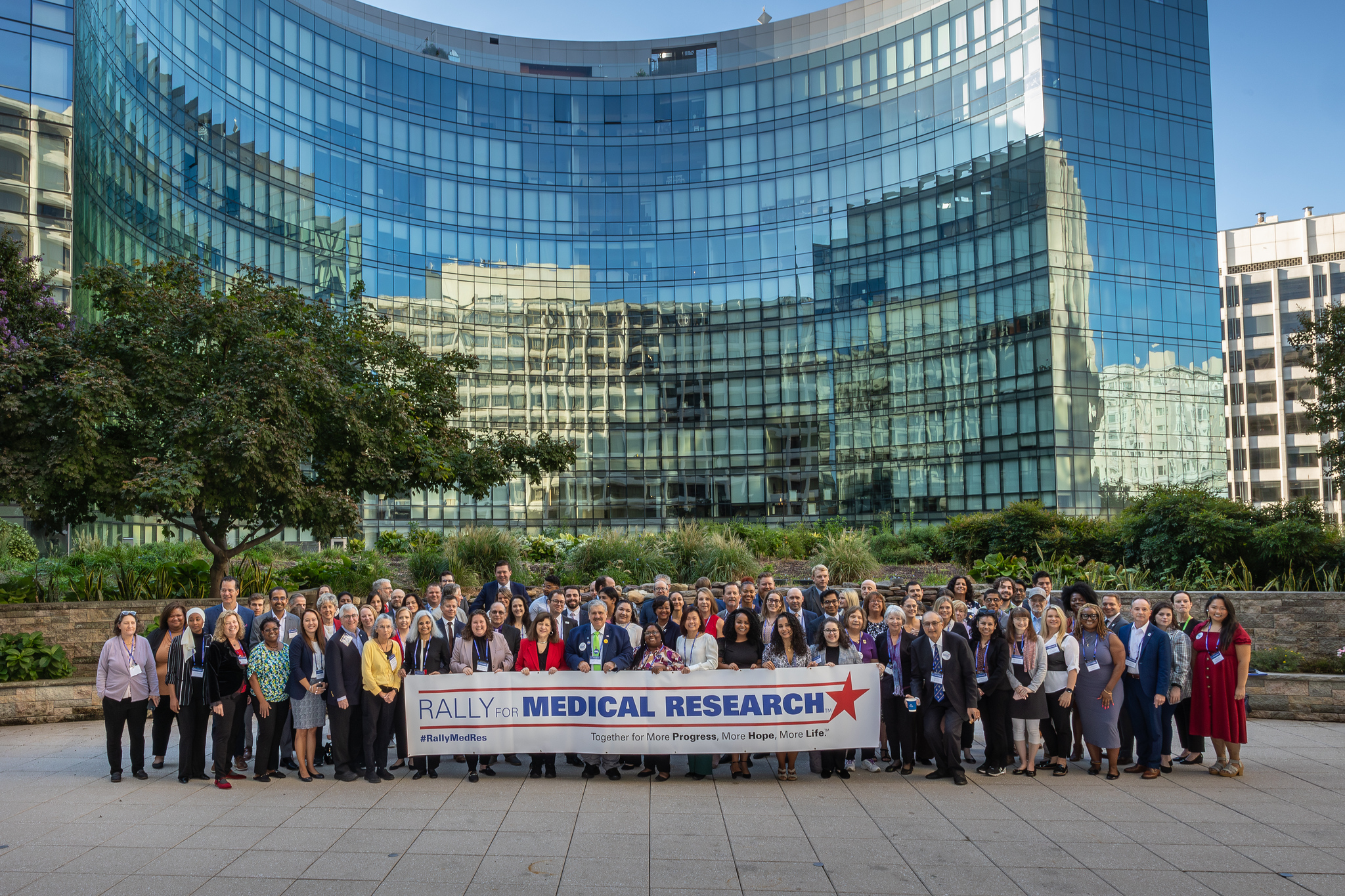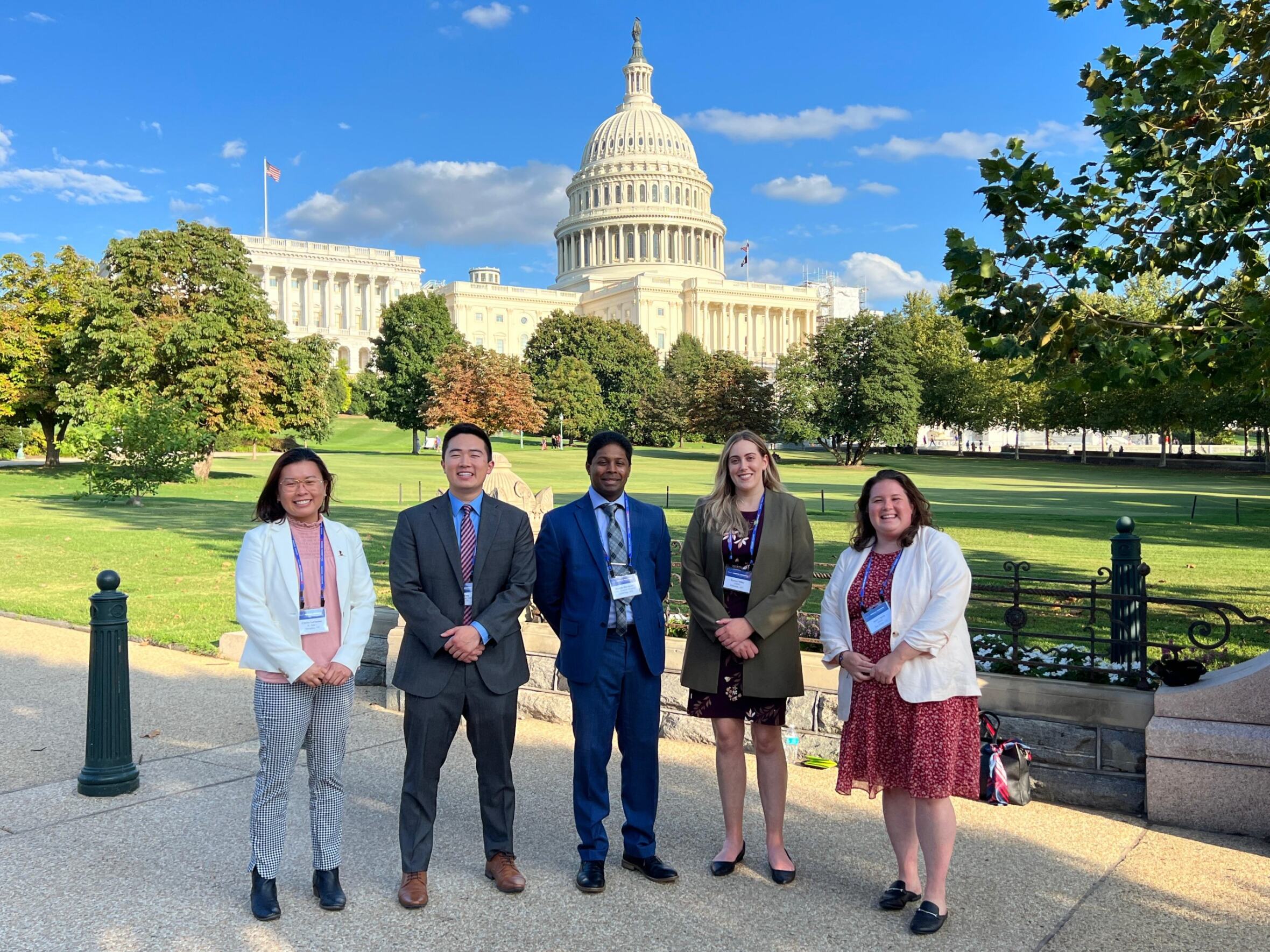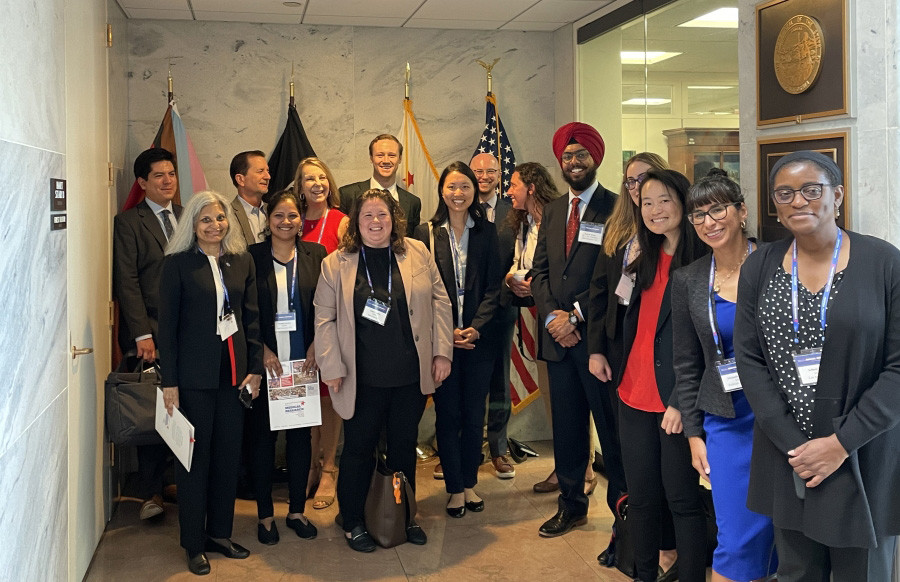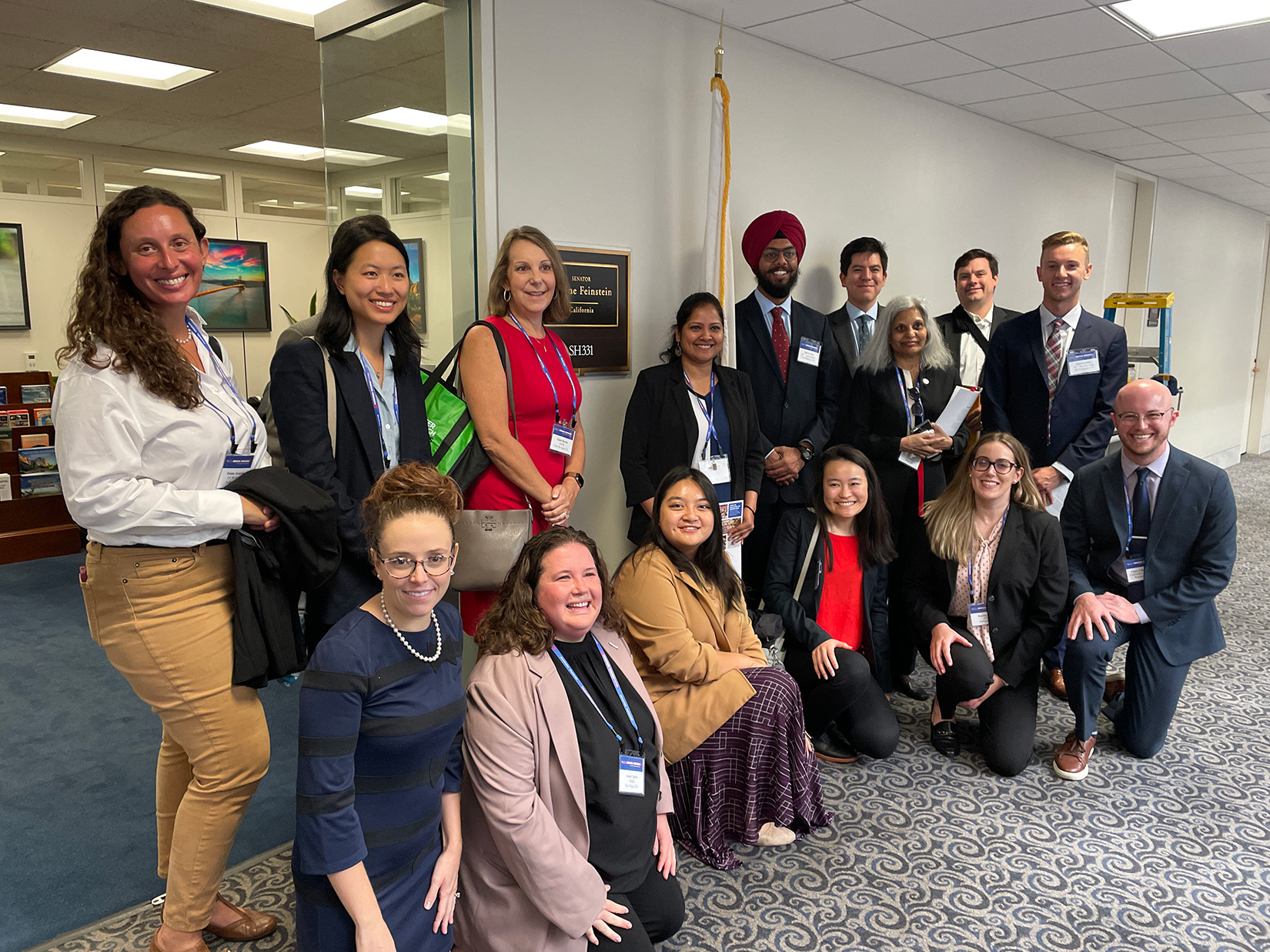Rally for Medical Research

While my day job is an outreach coordinator and bioinformatic analyst at JCVI, supporting the Bacterial and Viral Bioinformatics Resource Center (BV-BRC), I also have a longstanding interest in science advocacy. As a graduate student at Keck Graduate Institute, I was selected to be part of an advocacy certificate training program through the American Society of Human Genetics (ASHG).
It was through this program that I had the opportunity to attend the Rally for Medical Research in Washington, D.C. this past September to advocate for scientific funding for the National Institutes of Health (NIH). NIH funding is critical to advancing our understanding of disease, anatomy, health, genetics, and wellness, all of which is underpinned by their commitment to basic science research.

The Rally for Medical Research has been held annually for the past 11 years, bringing together the scientific community to advocate for robust NIH funding. Scientists and advocates from hundreds of organizations from across the country meet in D.C. for a momentous push to Congress to fund NIH.
Congressional support for NIH runs deep, including from long-time friend of scientific funding Senator Dick Durbin. The day before the rally, Senator Durbin spoke at a reception in the Dirksen building where he highlighted his efforts and the impact we can all make on ensuring continued strong support for NIH.

Other speakers at the reception included an introduction from American Association for Cancer Research CEO Margaret Foti, PhD, MD. Talks from Dr. Keith Churchwell from the American Heart Association, NIH’s Acting Principal Deputy Director, Dr. Tara Schwetz, Dr. Keith Yamamoto, Chair, Coalition for the Life Sciences (and many more positions), and longtime Alzheimer's advocate Sarah Harris, with whom I had the pleasure to speak and hear how she has been advocating for 50 years.


My passion for scientific advocacy has been greatly enhanced from training and certification through ASHG. ASHG understands the importance of training scientific advocates as integral to sustained scientific funding. I have had the opportunity to learn more about this over the last year with other early-career scientists. It is through this program that we were able to join on Capitol Hill to advocate continued NIH funding.
This year, our advocacy efforts were significant as major discrepancies exist between the House and the Senate in their understanding of how much funding the NIH should receive. While the community that supports scientific research on the Capitol Hill is extensive, including scientific staffers, lobbyists, and other organizations advocating for funding daily, every voice matters. I take great pride in having been able to share my work and experiences to advance such important legislation. Your voice matters, too.
Those we met with were genuinely receptive and kind and showed passion and excitement for what we had to share. We had constructive conversations with each office, including staff from Senators Alex Padilla and the late Diane Feinstein from California, Representative Scott Peters’ office, and Representative Brad Sherman. I was impressed by their commitment to science, thoughtful questions, and support for NIH funding.